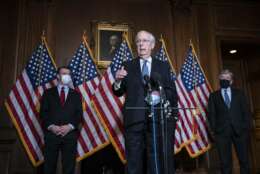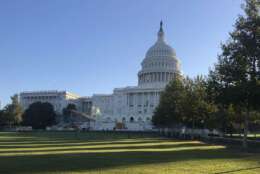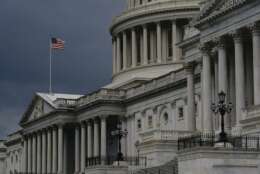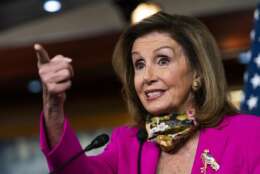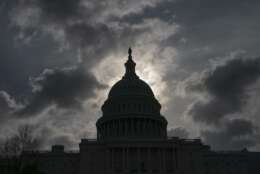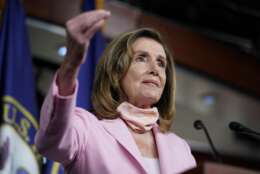Government Shutdown
-
President Donald Trump has signed a temporary government-wide funding bill into law, averting a federal shutdown at midnight and buying Congress time for on-again, off-again talks on COVID-19 aid
December 11, 2020 -
Congress will begin voting Wednesday on a temporary funding stop-gap that will keep the government through Dec. 18. Congressional leaders have repeatedly said they're not expecting a government shutdown, but some agencies have updated their contingency plans for the pandemic just in case.
December 07, 2020 -
WTOP Capitol Hill correspondent Mitchell Miller joined Federal Drive with Tom Temin for the outlook.
December 07, 2020 -
Government funding, a potential Covid-19 relief deal, the annual defense policy bill and a federal pay raise are all unresolved items as Congress heads into a pivotal week before it's scheduled to go home for the holidays.
December 07, 2020 -
The U.S. Court of Federal Claims on Tuesday rejected the government lawyers' bids to dismiss a lawsuit stemming from the 35-day government shutdown that ended in January 2019.
December 03, 2020 -
The latest decision from a U.S. Court of Federal Claims judge means attorneys can begin what will likely be a lengthy pursuit of damages for excepted federal employees who worked without pay during the last government shutdown.
December 02, 2020 -
The president has signed a temporary stopgap funding measure into law, which keeps agencies running through Dec. 11 and avoids a government shutdown.
September 30, 2020 -
Democrats and Republicans in a bitterly divided U.S. House have voted to take a government shutdown off the table this fall, giving a big, bipartisan vote to a temporary government-wide funding bill Tuesday night
September 22, 2020 -
A draft continuing resolution from House Democrats would also restrict agencies from implementing employee furloughs, set a new fee structure for U.S. Citizenship and Immigration Services and fund several large agency projects. But Republicans have expressed opposition to the measure.
September 21, 2020 -
In today's Federal Newscast, there is now an informal deal in place to avoid a potential government shutdown at the end of the month.
September 07, 2020 -
Congress left town without a plan to tackle a growing list of priorities that must get done, in some cases, by Sept. 30. They include a coronavirus relief package, bailout money for U.S. Citizenship and Immigration Services and the Postal Service, and oh yeah, a plan to avoid a government shutdown.
August 17, 2020 -
New draft regulations from the Office of Personnel Management will ensure employees and annuitants experience no major interruptions to their federal health, dental, vision and life insurance during future government shutdowns.
July 17, 2020 -
Agencies in recent years have faced a recurring dilemma: Congress can't act on time, so there's a lapse of appropriations - a partial shutdown.
July 15, 2020 -
U.S. attorneys have filed a motion to dismiss the claims more than 2,000 federal employees who are unidentified or ineligible for liquidated damages after the 2013 government shutdown.
February 21, 2020 -
In today's Federal Newscast, Washington, D.C., Rep. Eleanor Holmes Norton is wants an update from the National Parks Service on its plan to reimburse the District of Columbia work it performed during the 35-day government shutdown of 2018-2019.
January 13, 2020

